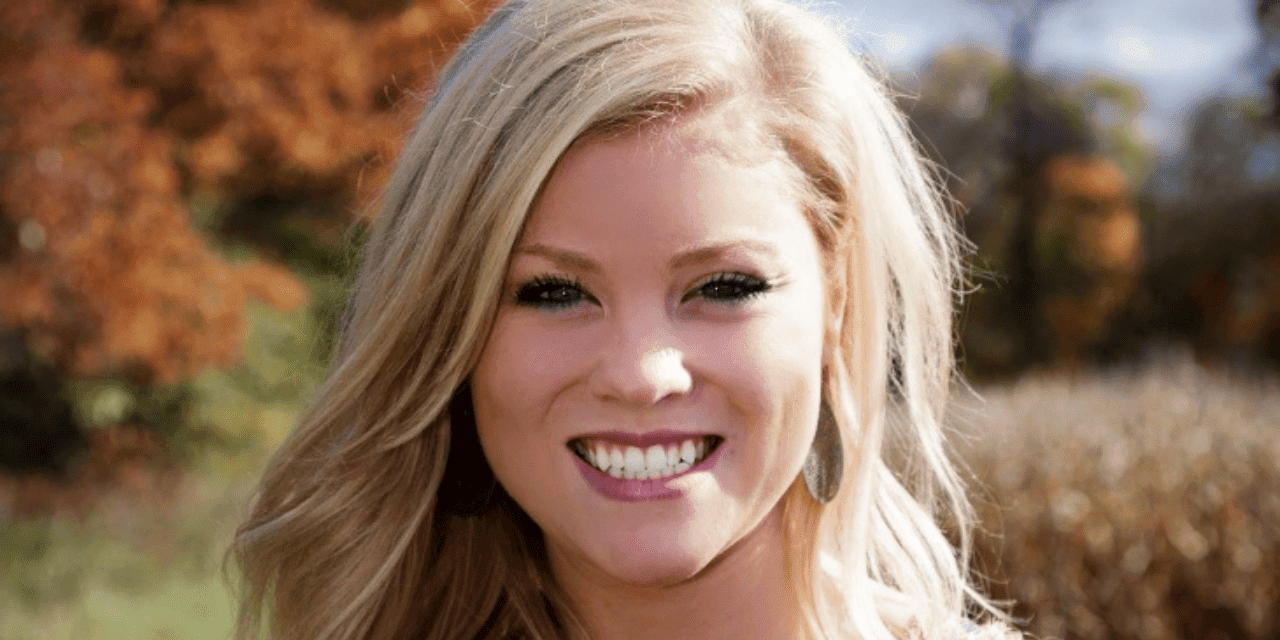University Backs Off from ‘No Contact’ Order Given to Christian Student Whose Views Triggered Liberal Classmates

There’s a happy ending to a recent story of Southern Illinois University (SIU) graduate student Maggie DeJong who was ordered, without any prior notice or chance to defend herself, to have “no contact” with three of her classmates who found her religious views objectionable.
The school has dropped its investigation of Maggie, thanks to a strongly worded letter from her attorneys with Alliance Defending Freedom (ADF).
“The university was right to drop its baseless investigation into Maggie, but unfortunately, there should not have been an investigation in the first place,” said ADF Senior Counsel Tyson Langhofer, director of the ADF Center for Academic Freedom, in a press release. “University officials should welcome dialogue from a wide range of religious and ideological viewpoints, modeling for students an environment where freedom of speech and religious expression can flourish.
“Yet Southern Illinois University Edwardsville officials stifled Maggie’s ability to meaningfully engage and participate in her academic program because she sometimes spoke from a religious point of view. The university must revise its policies to adequately safeguard the constitutionally protected freedoms of Maggie and every other student and ensure that no other students are subjected to baseless investigations for expressing their religious views.”
As The Daily Citizen reported, Maggie was in her final semester of her graduate program in art therapy counseling when she received an official university email ordering her to have no contact with the three classmates, all of whom she has known and been friends with for the past couple years.
The university told Maggie simply that “interactions between yourself [and the other students] would not be welcome or appropriate at this time.”
Maggie is a Christian and has openly expressed her beliefs in class and in communications with her classmates. For that openness, she was subjected to belittling by professors and classmates, and one of her texts to another student about being grounded in the objective truth of the gospel of Jesus Christ ended up on a classmate’s art piece, prominently displayed in the school’s common area labeled as a “micro-aggression.”
The university’s “no contact” order violated Maggie’s constitutional rights under the First Amendment. A government institution cannot censor or suppress speech without a compelling justification, and certainly not without due process. The university was guilty of violating both requirements in Maggie’s case.
In the larger context of this case, however, one has to ask: Why are twenty-something adults unable and unwilling to engage in conversations with Maggie about her views? Why would they feel the need to “tattle” on Maggie to school administrators, and why would university officials believe that punishing free speech was acceptable in an educational institution?
It all seems so childish, not the hallmark of an institution of higher learning. And involving a graduate program, no less.
It boggles the mind to see how fragile our public discourse has become on college campuses, as evidenced by a recent “shout-down” incident at Yale Law School involving an ADF presenter in a free speech discussion hosted by the student Federalist Society there.
But the government, in the form of a public educational institution like SIU, does not get to take sides and decide which speech will be allowed and which will be punished.
It’s nice to see SIU ultimately do the right thing by Maggie. Kudos to our friends at ADF for enlightening the administrators at SUI about basic free speech principles.
Photo from ADF.
ABOUT THE AUTHOR

Bruce Hausknecht, J.D., is an attorney who serves as Focus on the Family’s judicial analyst. He is responsible for research and analysis of legal and judicial issues related to Christians and the institution of the family, including First Amendment freedom of religion and free speech issues, judicial activism, marriage, homosexuality and pro-life matters. He also tracks legislation and laws affecting these issues. Prior to joining Focus in 2004, Hausknecht practiced law for 17 years in construction litigation and as an associate general counsel for a large ministry in Virginia. He was also an associate pastor at a church in Colorado Springs for seven years, primarily in worship music ministry. Hausknecht has provided legal analysis and commentary for top media outlets including CNN, ABC News, NBC News, CBS Radio, The New York Times, the Chicago Tribune, The Washington Post, The Washington Times, the Associated Press, the Los Angeles Times, The Wall Street Journal, the Boston Globe and BBC radio. He’s also a regular contributor to The Daily Citizen. He earned a bachelor’s degree in history from the University of Illinois and his J.D. from Northwestern University School of Law. Hausknecht has been married since 1981 and has three adult children, as well as three adorable grandkids. In his free time, Hausknecht loves getting creative with his camera and capturing stunning photographs of his adopted state of Colorado.
Related Posts

Sidewalk Evangelist Wins Right to Share Good News
October 31, 2025



